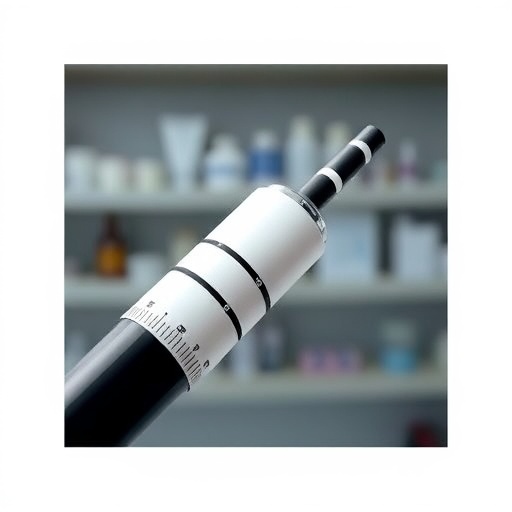In a groundbreaking study published in the journal Diabetes Spectrum, researchers from the University of California San Diego have unveiled compelling evidence that clinical pharmacists play a pivotal role in managing diabetes among cancer patients—a demographic notoriously challenged by blood sugar irregularities during their treatment journeys. This investigation not only highlights the significant improvements in glycemic control achieved through pharmacist-led interventions but also underscores an urgent need for integrated care models that bridge oncology and diabetes management.
Cancer and diabetes represent two major health burdens worldwide, and the intersection of these illnesses creates a uniquely precarious clinical scenario. Elevated blood glucose levels, medically termed hyperglycemia, frequently complicate cancer treatments due to their immunosuppressive effects and potential to diminish therapeutic efficacy. Approximately 20% of individuals diagnosed with cancer concurrently battle diabetes, an overlap that demands nuanced care. Chemotherapy, immunotherapy, and corticosteroids—cornerstones of modern oncology—often exacerbate glucose dysregulation, rendering routine diabetes management insufficient and necessitating specialized attention.
The UC San Diego study meticulously followed 79 adult patients with both cancer and diabetes or hyperglycemia who engaged with a Diabetes Management and Education Clinic (DMEC) steered by clinical pharmacists between 2019 and 2024. These pharmacists, drawing on their expertise in pharmacology and patient education, tailored individualized treatment plans that encompassed medication optimization, lifestyle counseling, and frequent monitoring. Care was delivered through a hybrid of in-person and telehealth appointments, allowing flexibility and sustained patient engagement.
Notably, participants experienced a pronounced reduction in hemoglobin A1c—a biomarker reflecting average blood glucose over approximately three months—dropping by nearly one percentage point over periods of three to nine months within the program. This metric is clinically meaningful, signaling a substantial reduction in the risk of diabetes-related complications. Beyond this, continuous glucose monitoring data revealed enhanced time spent in normoglycemic ranges and a reduction in glucose variability, both critical factors in minimizing adverse health events and optimizing cancer treatment outcomes.
A striking feature of the intervention was its efficiency; patients typically attended just over two scheduled consultations with DMEC pharmacists alongside six or more follow-up contacts emphasizing remote support. This approach not only signifies feasibility but also amplifies scalability potential—a vital consideration given the rising prevalence of patients grappling with the dual diagnosis of cancer and diabetes globally. The scalability benefits are especially relevant in contexts where healthcare resources are stretched and personalized care can be challenging to deliver.
From a mechanistic perspective, hyperglycemia compromises immune competence by fueling inflammatory pathways and oxidative stress, which can heighten infection risk in vulnerable cancer patients. Moreover, erratic glycemic profiles can interfere with metabolite processing and pharmacokinetics of oncologic agents, thereby undermining therapeutic efficacy and potentially contributing to treatment delays. These multifaceted dangers underscore the urgent need for specialized interventions like those provided by clinical pharmacists, who bring a pharmacotherapeutic lens to complex medication regimens and behavioral modifications.
The study also sheds light on the challenges in accurately monitoring glycemic control within cancer populations. Traditional metrics such as hemoglobin A1c may be confounded by cancer-related anemia, prompting the need for adjunctive tools such as continuous glucose monitors (CGMs). CGMs provide real-time glucose readings, enabling clinicians to detect and respond swiftly to glycemic fluctuations that could otherwise go unnoticed until they manifest clinically. Incorporating CGMs within diabetes care frameworks is thus a promising advancement, particularly in complex care environments where rapid shifts in patient status are common.
Importantly, the findings advocate for earlier integration of diabetes management into the oncology care pathway. Many patients in the study were referred to DMEC several weeks after initiating cancer therapy, indicating missed opportunities for prompt intervention. Embedding diabetes-trained pharmacists directly within oncology clinics could facilitate immediate assessment and treatment adjustments, ensuring that glucose management becomes a proactive rather than reactive component of cancer care.
Christina Mnatzaganian, Pharm.D., the study’s lead author and a clinical professor at UC San Diego, emphasizes the unique role pharmacists can fulfill within multidisciplinary teams. Their specialized training enables them to bridge knowledge gaps between oncology and endocrinology, interpret complex glucose data, and deliver patient-centered education essential for self-management. This collaborative model not only enhances clinical outcomes but may improve patient experience by minimizing fragmented care.
While acknowledging the retrospective design and absence of a randomized control group, the researchers advocate for broader prospective studies to validate these findings and explore downstream outcomes such as hospital admissions, infection rates, treatment adherence, and long-term cancer survival. They also highlight an important research avenue in understanding how optimized glycemic control influences cancer recurrence and overall prognosis.
The implications of this research extend beyond clinical metrics. Improving blood sugar management in cancer patients has the potential to alleviate systemic burdens on healthcare infrastructure by reducing complications that necessitate emergency care or prolonged hospital stays. Furthermore, it aligns with a growing emphasis on holistic patient management whereby comorbid conditions are addressed synergistically rather than in isolation.
In conclusion, this pioneering study not only confirms that pharmacist-led diabetes care substantially improves blood sugar control among cancer patients but also calls for innovative, integrated healthcare models. Such models promise to close the care gaps that leave millions vulnerable to the compounded effects of diabetes and cancer. As the intersection between these conditions grows ever more prevalent, leveraging the pharmacologic expertise of clinical pharmacists represents a scalable, effective paradigm to elevate patient outcomes and redefine chronic disease management in oncology settings.
Subject of Research: Clinical pharmacy interventions in diabetes management among cancer patients
Article Title: Pharmacist-Led Diabetes Care Improves Glycemic Control in Patients Undergoing Cancer Treatment
News Publication Date: October 30, 2025
Web References: http://dx.doi.org/10.2337/ds25-0059
Keywords: Diabetes, Cancer, Hyperglycemia, Pharmacist-led interventions, Blood sugar control, Hemoglobin A1c, Continuous glucose monitoring, Oncology care integration, Immunosuppression, Chemotherapy, Telehealth, Chronic disease management




